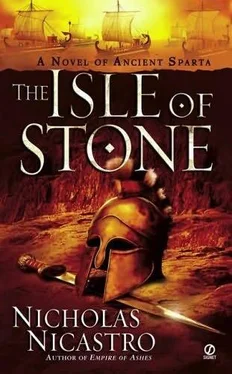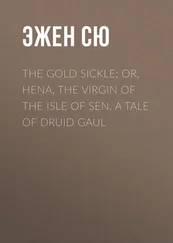Nicholas Nicastro - The Isle of Stone
Здесь есть возможность читать онлайн «Nicholas Nicastro - The Isle of Stone» весь текст электронной книги совершенно бесплатно (целиком полную версию без сокращений). В некоторых случаях можно слушать аудио, скачать через торрент в формате fb2 и присутствует краткое содержание. Жанр: Исторические приключения, на английском языке. Описание произведения, (предисловие) а так же отзывы посетителей доступны на портале библиотеки ЛибКат.
- Название:The Isle of Stone
- Автор:
- Жанр:
- Год:неизвестен
- ISBN:нет данных
- Рейтинг книги:4 / 5. Голосов: 1
-
Избранное:Добавить в избранное
- Отзывы:
-
Ваша оценка:
- 80
- 1
- 2
- 3
- 4
- 5
The Isle of Stone: краткое содержание, описание и аннотация
Предлагаем к чтению аннотацию, описание, краткое содержание или предисловие (зависит от того, что написал сам автор книги «The Isle of Stone»). Если вы не нашли необходимую информацию о книге — напишите в комментариях, мы постараемся отыскать её.
The Isle of Stone — читать онлайн бесплатно полную книгу (весь текст) целиком
Ниже представлен текст книги, разбитый по страницам. Система сохранения места последней прочитанной страницы, позволяет с удобством читать онлайн бесплатно книгу «The Isle of Stone», без необходимости каждый раз заново искать на чём Вы остановились. Поставьте закладку, и сможете в любой момент перейти на страницу, на которой закончили чтение.
Интервал:
Закладка:
The boys were sometimes diverted from this torment by the intermittent presence of Thibron, son of Proclus. A smiling, handsome figure with preternaturally white teeth, Thibron was a Firstie-a member of the highest age-class, poised to leave the Rearing and embark on his career as a fighting member of the army. One of the duties of a Firstie was to school his juniors with advice and games. Thibron kept Beast’s pack on the run with a steady stream of physical challenges, calling on each of them to exceed the exploits of the rest. “Which of you can climb this tree the fastest?” was a typical dare. Others were less innocent, such as “Who can take a punch in the chest from Beast and not flinch?” or “Who can stay facedown in the river the longest?” or, most ingeniously, “Who can bring me some hairs from the leg of Isidas the Ephor?” Fulfilling these tasks broke up the monotony of long afternoons in the hills. It also gave Thibron an air of diabolical excitement-when he appeared, no one was sure what might happen.
But there were even greater dangers on the roam. The worse thing that could happen was to blunder into a gang of older boys, who would make them pay for their lack of discretion. This happened only once, during an afternoon when Beast led them down to the Eurotas to drink. Their favorite spot was occupied by a pack of fourteen- and fifteen-year-olds. During the chase Frog was caught from behind. Antalcidas heard him scream as the enemy gathered to kick him. Circling around, Antalcidas found a good round stone and, without thinking of the consequences, threw it at one of Frog’s tormenters. The rock struck its target square in the back.
“Ow! What was that?”
“Somebody threw something.”
“Where?”
They peered into the woods, but Antalcidas was well hidden among the laurel and holly oak. He had another stone in his hand, in case they came after him.
“I don’t see anything.”
“Somebody’s in there-I can smell him.”
“C’mon, let’s go,” said their leader, looking down on the supine Frog. “This little shit isn’t worth it.”
After each offered a parting kick, they left him on the ground. Antalcidas crept up, eyes and ears open in case their withdrawal was a trap.
“Are you all right?” he asked Frog. “Can you walk?”
The other boy moved his limbs, said something unintelligible, but otherwise made no response. Antalcidas turned him over to examine his chest and stomach. There were red marks there that would soon ripen into footprint-sized welts.
“Stone, what are you doing?” asked Beast, who was suddenly standing behind him.
“He’s hurt.”
“Got the wind knocked out of him. Hey, did you throw rocks at them?”
Beast had a look on his face as if he’d caught Antalcidas using a girl’s spindle.
“I did… but only because there were so many.”
“I didn’t hear that.”
“What was I supposed to do? There were five of them!”
“Listen, rocks are fine for punishing helots. But in battle, against real enemies, you don’t demean yourself by couching behind a bush and throwing things. Don’t you know anything?”
“I know you weren’t there to help.”
But Beast was already walking away, shaking his head.
After the new year they heard again from the boy-herd. The pack was summoned to the crest of the acropolis, where it was met by Endius and a man they did not know. Endius had the boys sit on the slope below them, obliging them to behold their teachers framed against the open sky. The boy-herd wore a simple tunic with one shoulder bared; the other man was dressed for war, with crimson cloak, short sword hanging from a leather baldric, and conical field cap made of felt on his head. His shield rested against his leg, its great lambda insignia-for “Lacedaemon”-facing out.
“Those who have lived thus far, congratulations,” Endius said without welcome or preamble. “The first part of your education is over. Today you will begin to learn what you need beyond survival. You will learn what it means to be a citizen of Sparta. Listen.”
He looked to the soldier, who leaned forward as if he was about to draw his sword. But instead he confronted them with a poem: I would not say anything for a man nor take account of him For any speed of his feet or wrestling skill he might have not if he had the size of a Cyclops and strength to go with it Not if he could outrun Boreas, the North Wind of Thrace not if he were more handsome and gracefully formed than Tithonos, or had more riches than Midas had, or Kinyras too, not if he were more a king than Tantalid Pelops, Or had the power of speech and persuasion Adrastos had, not if he had all splendors except for a fighting spirit. For no man ever proves himself a good man in war unless he can endure to face the blood and the slaughter, go close against the enemy and fight with his hands. Here is courage, mankind’s finest possession, here is the noblest prize that a young man can endeavor to win, and it is a good thing his polis and all the people share with him when a man plants his feet and stands in the foremost spears relentlessly, all thought of foul flight completely forgotten, and has trained his heart to be steadfast and to endure, and with words encourages the man who is stationed beside him-
“When I first heard these verses of Tyrtaeus,” said Endius, “I was a child precisely as old as you are now, sitting in exactly the same place. The telling was done in just the same way, by a Spartiate as honored as Aeimnestus who stands here today, for the very same purpose. Savor this moment, boys, for it is given to none of us to hear Tyrtaeus for the first time twice. And like Aeimnestus, you will come to know every word of ‘The Code of the Citizen’ as well as you will know the fourth hour of a night watch, or what it feels like to take your place in the bronze-girt line. It has been this way since the sons of Herakles first conquered the kingdom of the Atreids, and so it will be thousands of years after we are all heaped on the pyre.”
The boy-herd looked to the soldier, who picked up his shield and, with a comradely nod to the pack, departed. To hear that the reciter was Aeimnestus, the very man who had killed the Persian general Mardonius at Plataea, inspired each boy to look on him with new eyes. Those ropes under his skin were the very tendons that bound the muscles of heroism; those were the glossy locks that fell across the shoulders of legends. Looking down, Stone beheld the horn-nailed, callused feet of a veteran campaigner. In the proud, self-sufficient vacuity of Aeimnestus’ eyes, he got his first look at a life dwarfed by its own renown-though it would be years before he understood this. For now, the moral of the man’s mere presence, that such honor was within the grasp of anyone in the pack, was as compelling as anything written by poets.
Endius gave the boys their first official orders. They were to memorize and recite the first twenty lines of the “Code” by the next day. Omission or inaccuracy, he warned, would tell on the backs of those who failed. The same went for those who flouted the state’s demand for them to learn their letters, and the dances of their fathers, and all the observances that sustained their city in the eyes of the gods. Then he asked the pack a question:
“For what purpose is the Spartan system?”
The abstractness of the question, and the sudden demand that they use their wits, at first kept the boys silent.
“My father said that his father told him that we suffer the Rearing to learn discipline,” said Redhead. “So the answer is discipline, then.”
“Too many words,” replied Endius. “Never prattle. And you’re wrong: discipline is never a goal, but only the means. Anyone else?”
“Victory?” Rehash ventured.
Читать дальшеИнтервал:
Закладка:
Похожие книги на «The Isle of Stone»
Представляем Вашему вниманию похожие книги на «The Isle of Stone» списком для выбора. Мы отобрали схожую по названию и смыслу литературу в надежде предоставить читателям больше вариантов отыскать новые, интересные, ещё непрочитанные произведения.
Обсуждение, отзывы о книге «The Isle of Stone» и просто собственные мнения читателей. Оставьте ваши комментарии, напишите, что Вы думаете о произведении, его смысле или главных героях. Укажите что конкретно понравилось, а что нет, и почему Вы так считаете.










![Nicholas Timmins - The Five Giants [New Edition] - A Biography of the Welfare State](/books/701739/nicholas-timmins-the-five-giants-new-edition-a-thumb.webp)

